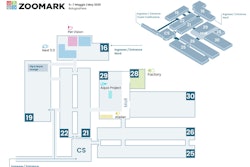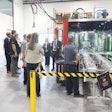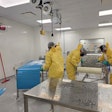The Human Animal Bond Research Institute (HABRI) has announced funding for a new research project at Colorado State University, led by Dr. B. Caitlin Peters, director of research at the Temple Grandin Equine Center, and Dr. Robin Gabriels, professor at the University of Colorado Denver Anschutz Medical Campus. This study aims to examine the impact of different human-equine interactions on physiological and behavioral indicators of self-regulation in autistic youth.
Autistic youth often experience challenges with self-regulation, which is the ability to monitor, evaluate and adjust emotions and behaviors. Equine-assisted services (EAS), such as therapeutic horseback riding (THR), have been shown to improve social skills and self-regulation in these youth. However, research is limited on the distinct effects of mounted (riding) vs. unmounted (grooming) human-equine interactions. This study seeks to fill that knowledge gap.
The study will be the first to randomly assign autistic youth, aged 6 to 16, to mounted or unmounted equine interactions. Participants will take part in three interventions: horseback riding, grooming a horse and interacting with a life-sized fake horse (as a control). Researchers anticipate that unmounted activities, like grooming, will result in calmer physiological responses and improved behavior, with both mounted and unmounted interventions showing positive effects compared to the control.
"This research could lead to the development of unmounted intervention protocols, expanding access to equine-assisted services for autistic youth who may be unable or unwilling to ride," said Dr. B. Caitlin Peters, principal investigator.
Steve Feldman, president of HABRI, expressed the institute’s enthusiasm for the study, stating, "We are proud to support research that makes equine-assisted interventions more accessible to autistic youth. This study will further our understanding of how human-animal interaction can benefit children with autism."
For more information about HABRI and its work, visit www.habri.org.














